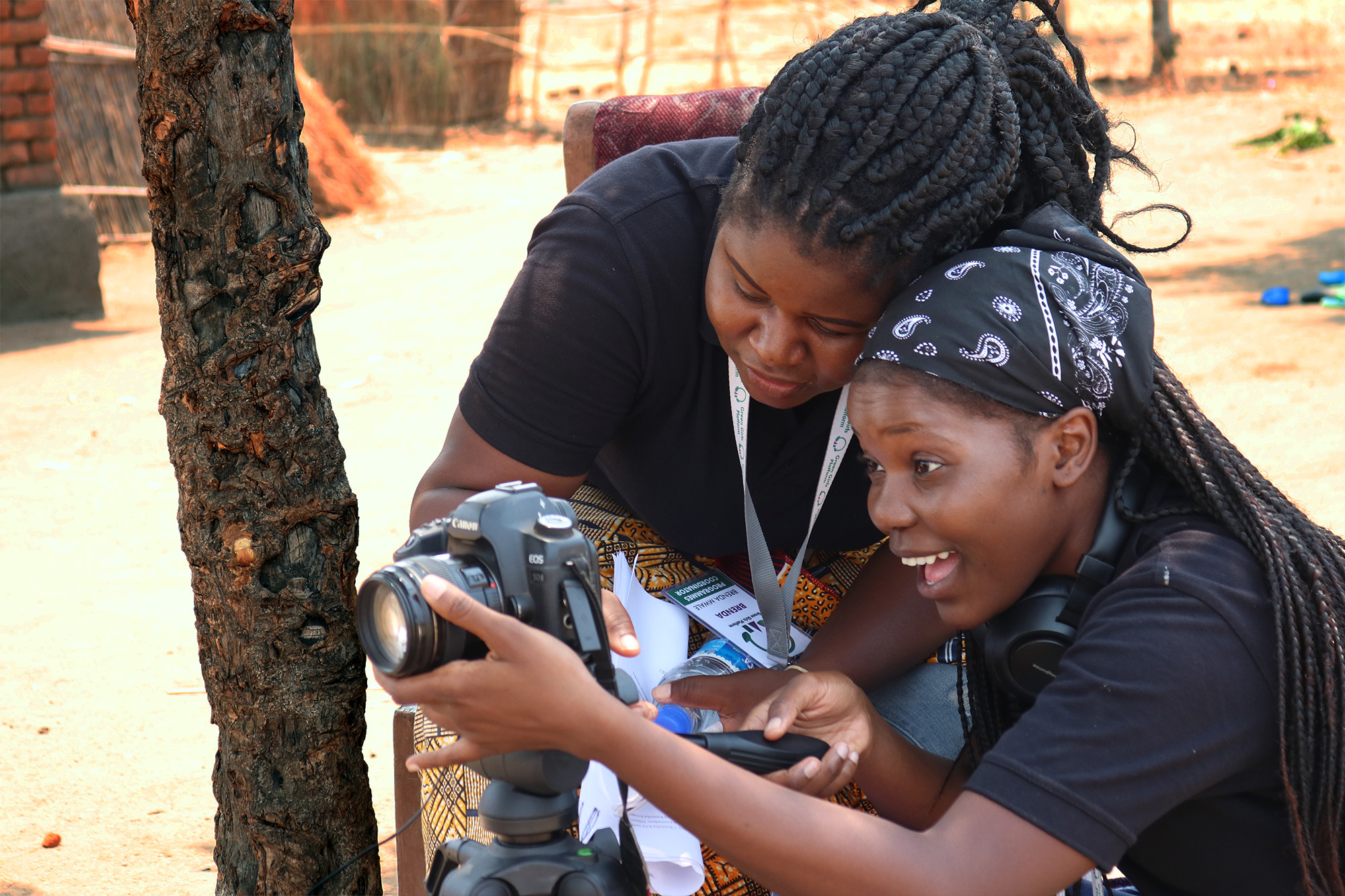Tess Mpoyi
Former Senior Policy Advisor

Equity, Agency, and Locally Driven Solutions
February 23, 2023
Former Senior Policy Advisor
Lire en français: Une nouvelle approche pour la résilience face au changement climatique
Last week, United Nations Secretary General António Guterres issued yet another warning of imminent climate catastrophe. The alert indicated that rising sea levels could impact some 900 million people in low-lying coastal areas and island states—nearly one in 10 people on Earth. The same day, climate scientists reported that Antarctic sea ice has reached its lowest levels since monitoring began. Yet despite mounting evidence that the effects of climate change are accelerating, most wealthy nations have neglected to meet the standards set out in the 2015 Paris Agreement, and COP27 failed to achieve new commitment to avoid catastrophic warming.
Climate change is here, and it is affecting us now. To respond to this crisis, we must be agile and rethink our current approaches to building climate resilience. These solutions must be based on data and centered in equity and justice for the people most affected by climate change.

While the world’s wealthiest economies have largely driven greenhouse gas emissions through overconsumption, the effects of climate change are disproportionately felt by low- and middle-income countries, which bear the brunt of rising seas, extreme weather, drought, and desertification.
Low-income nations need more than funding to offset damage from impacts such as flooding and drought, as the newest climate fund proposes. Climate change is a threat multiplier, with deep, systemic repercussions including disrupted access to essential services, internal and external migration, and exacerbated social conflict. For example, eroding coastlines, decreased agricultural harvests, and other climate-related impacts contribute to a growing flux of migration within and out of West Africa as people seek opportunity elsewhere, intensifying existing political conflict.
These cascading impacts disproportionately affect women and young people, worsening existing norms that prevent them from making choices to shape their futures. Deprived of these choices, individuals and communities are less nimble in response to changing conditions and unforeseen shocks.
Over the last 30 years, approaches that work across multiple sectors to holistically address community priorities―including increasing access to family planning and strengthening sustainable livelihoods and environmental conservation―have proven more effective than single-sector programs. This sort of integrated population, health, and environment approach has provided essential learnings on ways to support communities in preparing for climate-induced shocks and build resilience—the ability to endure or even thrive after upsets. However, adapting to the accelerating impacts of the climate crisis requires new ideas, revitalized commitment, and a bigger scale.
Understanding how climate change affects people and society—including the links between climate and equity, gender dynamics, health, and livelihoods—can help identify paths to an effective, integrated response. Population data in these areas have helped reveal how the climate crisis is both a result and a driver of inequities within and across countries. Such data can and should be part of the solution: Granular information about how people choose to plan their families and livelihoods in a context of environmental stress and shocks can help national, subnational, and community decisionmakers effectively prepare for the future.
With access to disaggregated and contextually relevant population data to inform their decisions, communities can build their own, context-specific paths to resilience. Such data can help decisionmakers engage in people-centered adaptation planning and prioritize investments in women and youth that strengthen individual agency and address the cascading impacts of climate change. The most successful approaches will draw on local information, solutions, and accountability mechanisms.
Green Girls Platform, a youth-led organization in Malawi, was founded by a group of young women who were tired of feeling unheard in climate actions even as they saw girls and women around them impacted by flooding and traveling increasing distances to fetch firewood and water for their families. Green Girls produced a video in 2022 urging decisionmakers to listen to women and girls and use gender-disaggregated data when developing climate plans that respond to their needs. The youth leaders took their message all the way to COP27 and were a founding member of the international We Trust You(th) Initiative, sparking dialogue and commitments on meaningful youth engagement in development.

When people have more options to provide for themselves and their families, they are more resilient to changing environmental pressures. When decisionmakers have insights about the ways in which people and climate interact, communities can invest in flexible, adaptable systems. We believe these measures can and should be part of a longer-term response to ensure stability and resilience across societies, blunting the impact of current and potential future shocks.
This blog is the first in a three-part series in which PRB advances a new approach to our investments in integrating population, gender, health, and the environment. The series will lay the foundations of a people-centered framework for building resilience to climate change centered on agency, equity, and the power of local solutions. The next two installments will explore elements of this resilience framework and lay out suggestions for action and investment.
Acknowledgments: Aïssata Fall, PRB’s Regional Representative for West and Central Africa, served as a consultant on this piece, as did Kaitlyn Patierno, Program Director; Elizabeth Leahy Madsen, Associate Vice President of International Programs; and Barbara Seligman, Senior Vice President of International Programs.
